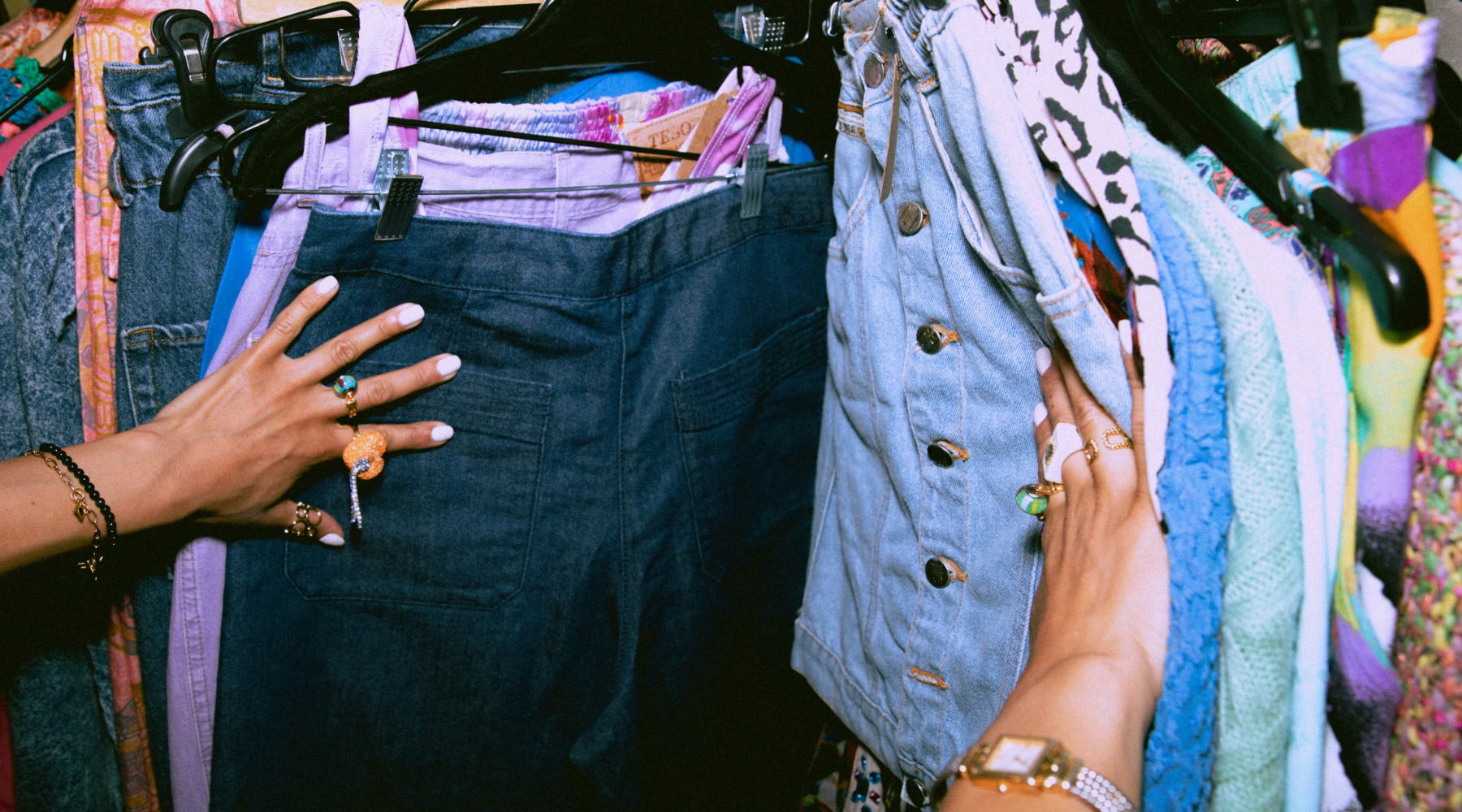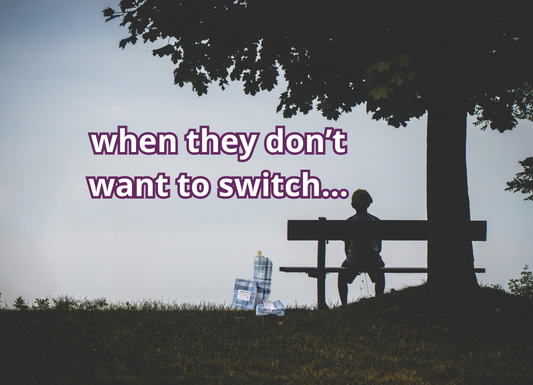Why Reduce, then Reuse, then Recycle?
Often, our sustainability efforts are a bit misguided.
Perhaps this is due to apathy, the idea that "somebody else will do it," or just some good old fashioned misinformation.
Even though I own and operate this eco-minded business - I'm not perfect, and neither do I expect you to be!
Today is the start of a new blog series where I explain, in layman's terms, what certain "sustainability" terms and concepts mean - and why they matter.
Oh, and how to apply them.
For the context of these blog posts, and other content I create in general - "sustainability" is not just the environmental aspect, but being personally "sustainable" as well. This includes things like financial, physical, or cognitive ability. Not everyone can do all of the "sustainable activities" and that's okay! I'm not going to spend time harping on this too much, nor is this series intended to give concrete examples of things you "must" do - we're just talking general concepts here.

Without further ado - let's discuss "Reduce, Reuse, Recycle"
We'll explore these individual terms more at a later date, but today let's go over the phrase and why it's written in this order.
There seems to be some debate about the origin of our battle cry, but from my research, it was likely started around 1970 - with the first national (U.S.) Earth Day being held on April 22 of that year. This was also around the same time the EPA (Environmental Protection Agency) was founded, and many government programs were funded to spread awareness about environmental issues.
The old hippie in me doesn't love that this came from "The Man", man. (Seriously, it was Nixon!) But hey, it kinda worked? It's still being used over 50 years later!
In the 70s, these government programs began outreach to schools and other public places.
These kinds of outreach efforts were actually the impetus for what I'm doing here! Someone came to my school in 3rd grade (circa 2002-2003) to teach us about pollution, waste, recycling, etc. Though the painful irony is that no recycling programs even existed in our area - nor exist in that area today.

Now, I'm not a "zero waste" fanatic for a multitude of reasons, but what I do agree with is the notion of "recycle less, not more." Ergot, why "recycle" is last in "reduce, reuse, recycle."
I guess we should start at the beginning with "reduce."
It's no shocking revelation that we (humans) have too much stuff. With fast fashion, capitalism, and the like.
I was browsing YouTube the other day and came across some product review videos. While I watched them test out these products that solved nonexistent problems, I thought to myself...
There are just too many things in existence. Too many man-made objects.
Pick any specific object, and you can find THOUSANDS, if not tens of thousands, of different options for this object.
We spend so much time shopping because there is too much to choose from. Decision fatigue is a very real thing.
To "reduce" in this context means to reduce the amount of stuff you bring in, or the amount of stuff you have. Easier said than done, as the practice of overconsumption is very normal in our culture.
I honestly think this is the most important step. We spend forever shopping for things, and end up buying things we either a.) don't need in the first place, or b.) have to throw away because the item is poor quality.

The concept of "planned obsolescence" is also a topic for another day.
Then, we have to constantly declutter or just move around piles of the stuff.
What if we just, like, didn't do that?
Less stuff means less to deal with. You don't have to worry about responsibly disposing of items you don't have in the first place.
Next is "reuse."
I am thankful to my grandparents for this one, some things they did really saved my behind as an adult.
Not everything "single-use" or "disposable" is just single-use. And not everything needs to be thrown away at the first sign of a tiny flaw. (Obviously not talking about sterile or sanitary items).
I think this one is the most self-explanatory, but try to give everything a second life if at all possible.

Old t-shirts get cut up into rags, other clothing with stains or holes gets turned into "outside" clothes or remade into something new, food containers get washed and used for leftovers, use both sides of a piece of paper, you get the gist.
My favorite is reusing small glass jars or prescription bottles as storage for small parts like nails, screws, sewing supplies, and even jewelry when traveling.
Then there's thrifting, yard sales, generally buying secondhand.
I've also been known to reuse thread for some of the products in my shop!
It blows my mind that not everyone saves and reuses plastic grocery bags, cardboard boxes, yogurt containers, jam jars, various string or rubber bands...
Sometimes the "saving to reuse" gets a bit out of hand, so if you find yourself with way too many boxes, containers, etc - it's time to go back to the first step and reduce what you buy.
Reusing goes both ways too! If you can't reuse something yourself, but someone else could - pass it along.

Schools or other childcare centers are always in need of supplies like paper, pens, pencils, and even art and craft supplies. Even stuff that would normally be trash like toilet paper and paper towel tubes, shoe boxes, yogurt containers for painting, and so on.
Bedding and linens can be donated to homeless shelters or animal shelters.
Professional clothing can be donated to organizations like Dress for Success (this one is in Cincinnati, OH but similar programs exist elsewhere)
Even formal wear can be donated to organizations like Cinderella's Closet (this one is in Northern KY but similar programs exist elsewhere).
One more to shoutout in Cincinnati is Transform Cincy - they provide free wardrobes to trans and gender nonconforming kids and young adults.
Check around for programs in your area - much better than donating to those "corporate thrift stores" when possible! Always check their website or ask for a list - since they may not accept everything. (Ex: Some may also take things like unopened cosmetics or personal care items).
I believe "reduce" comes before "reuse" because overconsuming secondhand items is still overconsuming!
Lastly, we have "recycle."
How many times have you heard "oh good thing this is recyclable!" or "just recycle it!"

Adding to the ever-growing list of upcoming blog posts - but "recycling" as we know it is a bit of a scam.
WAIT - don't get ahead of me. I don't mean you should not ever recycle - but it's more of a cop-out, or an excuse, for corporations to not be responsible for the waste they produce. But, again, a topic for another day. The misinformation is endless.
Recycling is much more complex and nuanced than we'd like to believe. But for now, let's start at our level as consumers.
Every local municipality (your town, city, county, whoever is responsible for waste collection) is going to have different abilities and facilities for waste management and recycling.
At my last house, we had curbside recycling that was not required to be sorted, but at our new house, there is no curbside recycling or trash pickup. We take trash to a dumpster at the end of the street, and recycling is to be sorted at a local drop-off a few miles away.
This information on what, when, and where to recycle should be clearly communicated to you and your neighbors, but unfortunately that's not always the case. So it takes a bit of research to be a responsible recycler.
As I mentioned, every facility is different. Most will take certain kinds of plastics, aluminum, and paper at a minimum. Check with your local facility's website or give them a call, I'm sure they would love to help - as it helps them when you recycle properly!
Here are a few things that are the same no matter where you are recycling:
1. Things must be CLEAN. This means if you have bottles or cans, rinse them of all residue. Think about it - one facility recycles hundreds of thousands, even millions, of bottles. Some with caps, some without. Do they really have time to wash them all? NO!
(Some places allow you to leave labels on, some request they be removed. Leaving them on makes the recycling more difficult, as you can't melt a paper label into plastic...)
2. Paper products must be clean and dry. Sadly, greasy pizza boxes can't be recycled. The grease contaminates the paper. Perhaps if it's a small spot of grease, you can cut it out, or recycle just the lid.
This means used tissues and napkins can't be recycled either. That's more of a job for compost.
3. Don't use those plastic "recycling bags" - unless requested. It's pretty uncommon for a local recycling facility to be able to accept "thin films" like plastic bags, so the "recycling bags" can get caught up in the machinery and make things more difficult.
You should not need to use them. As mentioned earlier, your recyclables should be clean anyways. Use tote bags or laundry baskets if you don't have curbside pickup.
4. Just because it has the recycling symbol - does NOT mean it can be tossed into any recycling bin!
Nearly everything now has some kind of recycling logo on it - mostly to feign some kind of corporate responsibility. Even things like TetraPaks and styrofoam, which are only recyclable in very few dedicated facilities, will have the recycling symbol.
Only pay attention to the recycling symbol on plastics. They will almost always have a number or a few letters in or around the recycling symbol. #1 and #2 plastics are the most commonly recycled, but check with your local facility to see which kinds they accept.
The big picture.

The best way to go about managing waste is a "circular" model, where things can be used and reused over and over. Recycling is a great way to do that, despite some of the challenges.
There's a lot that we can do as consumers, but at the end of the day, we're not the ones creating all these products that can't be reused or recycled!
Our individual choices matter, so let's make better choices with our purchasing. Whether that's opting for a more-recyclable aluminum drink can instead of a plastic bottle, rethinking our implusive purchases, or supporting small local businesses.
Stay tuned for more Sustainability Basics!




